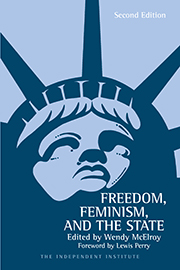A child custody case in Massachusetts may be placing family court procedures on a collision course with the First Amendment.
Last week, a Massachusetts family court judge issued an order restraining the distribution of a book entitled "Exposing the Corruption in the Massachusetts Family Courts." The author, Kevin Thompson, is a non-custodial parent who feels betrayed by a judicial system that he calls "anti-father."
Click here to preview the book.
Thompson claims that his book is "banned" in the Boston sense of that word. But according to the order, which Thompson received by mail last Friday, impounding the book is necessary to protect the privacy interests of the minor child. In other words, the book includes information about Thompson’s 4-year-old son, which violates a minor’s privacy in a legal proceeding.
("Family court" is commonly defined as "a separate court, or more likely a separate division of the regular state trial court" that adjudicates family conflicts, such as divorce, and legal matters involving children such as custody, child support and adoption. Its proceedings are far more cloistered than those of other courts; this protects privacy but also prohibits scrutiny.)
Concern for a child’s privacy, however, does not explain some of the circumstances surrounding the restraining order. For example, the issuing judge is also the subject of an entire section of Thompson’s book: Chapter 17, “Judge Mary McCauley Manzi.” Canon 3 of “The Code of Conduct for United States Judges” requires a judge to recuse him or herself when “impartiality might reasonably be questioned.”
Manzi would seem to have a conflict of interest.
The history of “Exposing the Corruption in the Massachusetts Family Courts” is long and complicated. The bare bones is as follows.
A high school physics teacher, Thompson had a relationship with a co-worker that resulted in the birth of a son, Patrick. Both sought custody.
Manzi awarded sole custody to the mother with visitation for Thompson. His attempt to appeal the decision was unsuccessful and a request for further appellate review was denied.
Frustrated by what he believes is an anti-father bias within the family court, Thompson penned an intentionally provocative exposé that blistered the system in general and several judges by name. Indeed, it is so incendiary as to detract from its credibility.
Nevertheless, the book and Thompson have received attention in local newspapers, such as the Lawrence Eagle Tribune. Unfortunately, the official silence that surrounds family court has not allowed for rebuttal from the judges.
Thompson states his purpose: “This book was written to gain justice in the court of public opinion because justice certainly does not occur behind closed doors in these ‘winner takes all’ courtrooms where absolute power has corrupted absolutely. The sanctimonious claim that the secrecy of family court cases protects the privacy of the litigants is a lie.
“The only interests that are protected are the interests of the racketeers and hypocrites who invade ‘family privacy’ by removing loving fathers from the lives of their children against their will and without just cause to fill their pockets.”
The book also excoriates Patrick’s mother, who sought to have it legally restrained. Judge Peter C. DiGangi granted a restraining order but ultimately recused himself from the follow-up hearing because the book severely criticizes him as well.
Instead, the hearing was held before Manzi. The outcome: Thompson is prohibited from disseminating specific identifying and medical information on the mother and child relating to the custody case, and from discussing evidence presented by the Department of Social Services. Thompson claims the excluded material constitutes the core of his book.
The case is impounded until 2021 to when Patrick presumably turns 18 years old.
A further court hearing is scheduled for April 19 to consider the mother’s request for the attorney fees she has incurred.
Thompson is unlikely to obey the restraining order. "Exposing the Corruption in the Massachusetts Family Courts" is still being advertised as available; moreover, Thompson has stated, “I made it clear at the hearing that Judge Manzi did not have the jurisdiction to ban my book. Any order issued from such a hearing would be illegal and, therefore, null and void.”
Instead, Thompson is invoking First Amendment rights, stating, “This Amendment applies to the states via the due process clause of the Fourteenth Amendment, which protects against government interference with certain fundamental rights and liberty interests.”
According to UCLA Law School professor Eugene Volokh, Thompson may be correct.
“If the judge has indeed enjoined distribution of the book, that seems like a clear First Amendment violation to me,” Volokh said.
“Regardless of when and whether a judge may limit parents’ custody rights based on their speech, the judge may not enjoin parents from publishing books; and that the book uses the child’s name and picture is surely not reason enough to enjoin speech this way, either—there is no First Amendment exception for speech about children.”
Nevertheless, it is common in family courts for a final judgment to include a permanent injunction on discussing specific aspects of the proceeding.
For years, critics have claimed that family court ignores constitutional rights. Sometimes the critics launch legal challenges.
For example, last week the Judicial Standards Commission dismissed a complaint against a North Carolina family court judge. The judge was accused of ignoring a defendant’s right to counsel when he insisted that a hearing proceed even though the defense attorney was absent.
Given Thompson’s history of appealing decisions, the fate of “Exposing the Corruption in the Massachusetts Family Courts” is likely to be revealed through such a challenge. If so, it will strike at the heart of one of family court’s defining features: the ability to surround proceedings with silence.









